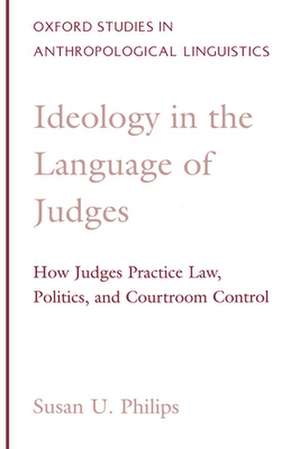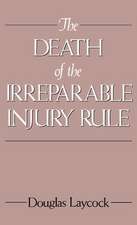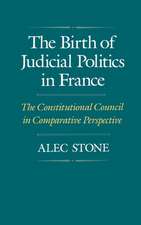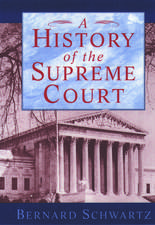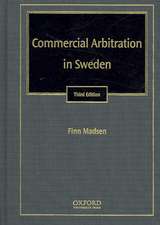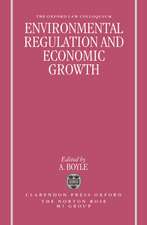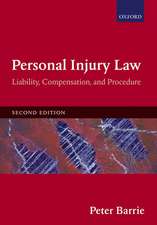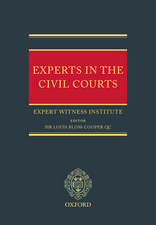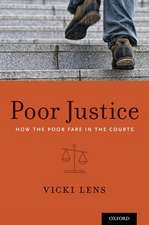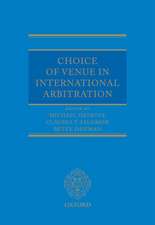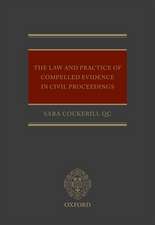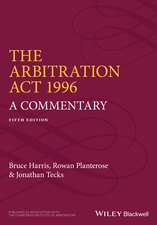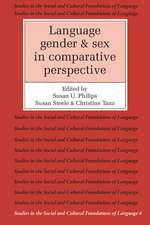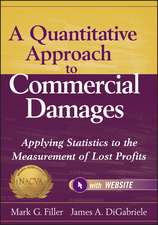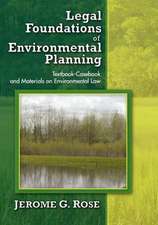Ideology in the Language of Judges: How Judges Practice Law, Politics, and Courtroom Control: Oxford Studies in Anthropological Linguistics, cartea 17
Autor Susan U. Philipsen Limba Engleză Paperback – 4 iun 1998
| Toate formatele și edițiile | Preț | Express |
|---|---|---|
| Paperback (1) | 331.73 lei 31-37 zile | |
| Oxford University Press – 4 iun 1998 | 331.73 lei 31-37 zile | |
| Hardback (1) | 1008.01 lei 31-37 zile | |
| Oxford University Press – 21 mai 1998 | 1008.01 lei 31-37 zile |
Din seria Oxford Studies in Anthropological Linguistics
- 27%
 Preț: 445.66 lei
Preț: 445.66 lei - 34%
 Preț: 653.23 lei
Preț: 653.23 lei - 31%
 Preț: 473.14 lei
Preț: 473.14 lei - 26%
 Preț: 532.97 lei
Preț: 532.97 lei - 34%
 Preț: 1185.61 lei
Preț: 1185.61 lei - 31%
 Preț: 495.40 lei
Preț: 495.40 lei - 34%
 Preț: 2321.56 lei
Preț: 2321.56 lei - 25%
 Preț: 782.37 lei
Preț: 782.37 lei - 22%
 Preț: 425.31 lei
Preț: 425.31 lei - 30%
 Preț: 777.96 lei
Preț: 777.96 lei - 34%
 Preț: 731.59 lei
Preț: 731.59 lei - 34%
 Preț: 1068.27 lei
Preț: 1068.27 lei - 31%
 Preț: 385.49 lei
Preț: 385.49 lei - 31%
 Preț: 1009.48 lei
Preț: 1009.48 lei - 19%
 Preț: 496.84 lei
Preț: 496.84 lei - 31%
 Preț: 935.36 lei
Preț: 935.36 lei - 34%
 Preț: 788.80 lei
Preț: 788.80 lei - 30%
 Preț: 577.08 lei
Preț: 577.08 lei - 22%
 Preț: 332.46 lei
Preț: 332.46 lei - 28%
 Preț: 375.06 lei
Preț: 375.06 lei - 30%
 Preț: 559.08 lei
Preț: 559.08 lei - 19%
 Preț: 319.82 lei
Preț: 319.82 lei - 38%
 Preț: 460.51 lei
Preț: 460.51 lei - 31%
 Preț: 669.29 lei
Preț: 669.29 lei - 22%
 Preț: 425.47 lei
Preț: 425.47 lei - 34%
 Preț: 1171.95 lei
Preț: 1171.95 lei
Preț: 331.73 lei
Preț vechi: 408.32 lei
-19% Nou
Puncte Express: 498
Preț estimativ în valută:
63.48€ • 68.93$ • 53.33£
63.48€ • 68.93$ • 53.33£
Carte tipărită la comandă
Livrare economică 12-18 aprilie
Preluare comenzi: 021 569.72.76
Specificații
ISBN-13: 9780195113419
ISBN-10: 0195113411
Pagini: 224
Dimensiuni: 229 x 155 x 15 mm
Greutate: 0.35 kg
Editura: Oxford University Press
Colecția OUP USA
Seria Oxford Studies in Anthropological Linguistics
Locul publicării:New York, United States
ISBN-10: 0195113411
Pagini: 224
Dimensiuni: 229 x 155 x 15 mm
Greutate: 0.35 kg
Editura: Oxford University Press
Colecția OUP USA
Seria Oxford Studies in Anthropological Linguistics
Locul publicării:New York, United States
Recenzii
A masterful achievement.... This will quickly become a major text in the literatures both on ideology in discourse and on legal discourse.
The book gives evidence that people do not compartmentalize their beliefs, however much they may wish to or believe that they are capable of it....it is refreshing...to see anthropological and linguistic studies taken to the city.
Conclusions are firmly embedded in rigorous observation and data analysis by Philips and represent an important contribution to studies of legal discourse.
The author uses fine-grained analysis of courtroom language to reveal the pervasive influence of ideology on trial court judges' practices. Followers of Philips's pioneering work on legal language will not be disappointed; the volume lives up to the exacting standard she set for the field in her early articles on courtroom (and classroom) discourse.
The book gives evidence that people do not compartmentalize their beliefs, however much they may wish to or believe that they are capable of it....it is refreshing...to see anthropological and linguistic studies taken to the city.
Conclusions are firmly embedded in rigorous observation and data analysis by Philips and represent an important contribution to studies of legal discourse.
The author uses fine-grained analysis of courtroom language to reveal the pervasive influence of ideology on trial court judges' practices. Followers of Philips's pioneering work on legal language will not be disappointed; the volume lives up to the exacting standard she set for the field in her early articles on courtroom (and classroom) discourse.
